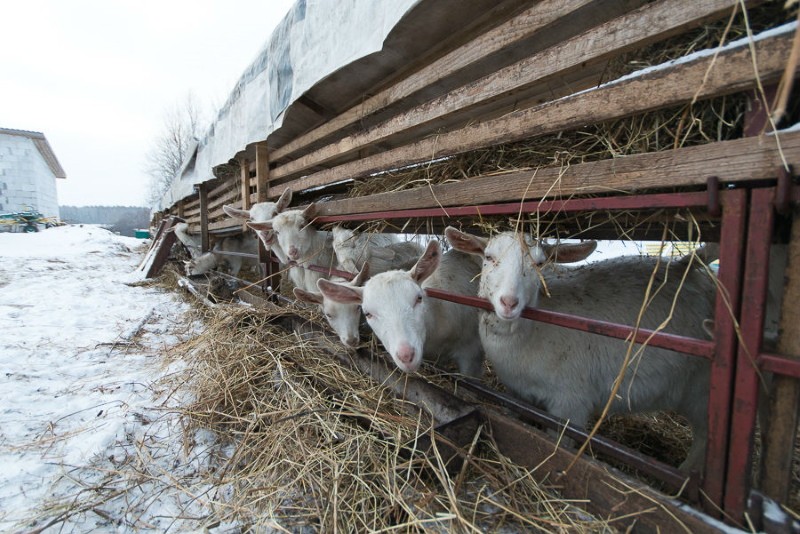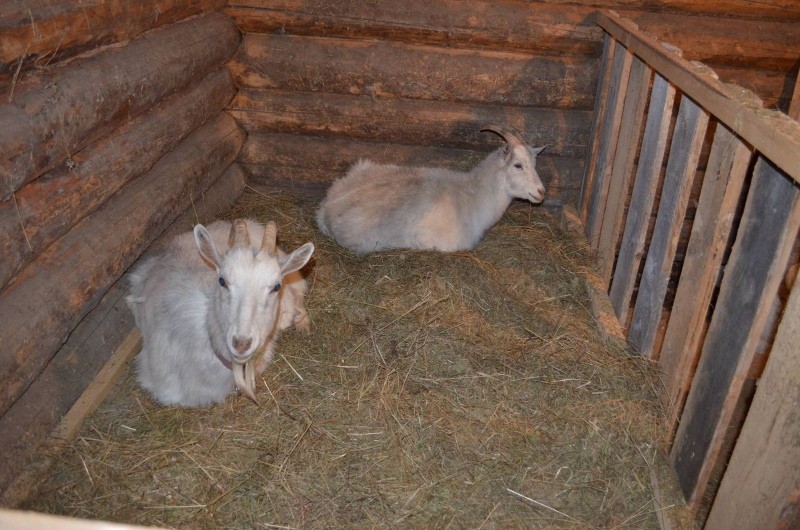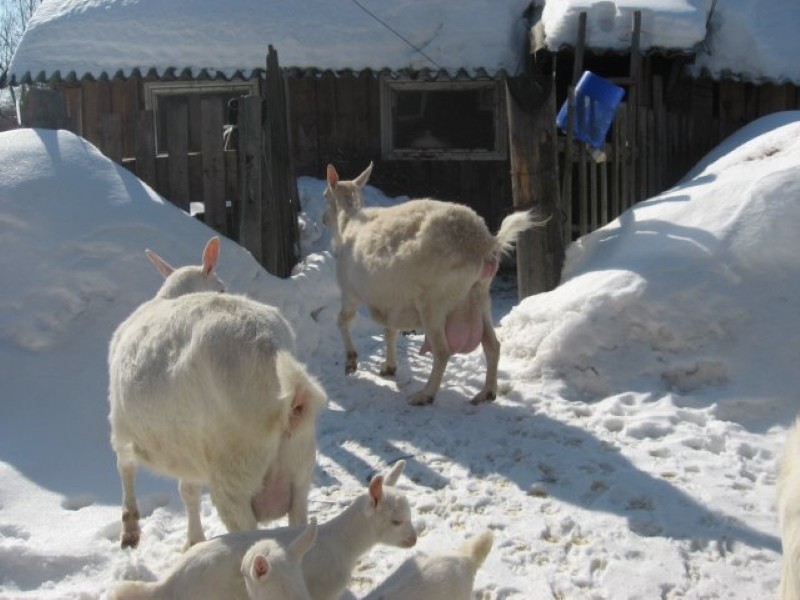Keeping goats in winter without heating is just a dry and light goat house
 Despite the fact that the fur coat of the goats is quite thick and warm, even it will not save from freezing in cold weather. In addition, do not forget that animals cannot sleep while standing, and after lying overnight on cold ground, they easily get pneumonia. But this does not mean that keeping goats in winter without heating is impossible. Make sure in advance that their winter home is dry, light and free of drafts. And also provide adequate nutrition, and then the goats will survive the winter without problems.
Despite the fact that the fur coat of the goats is quite thick and warm, even it will not save from freezing in cold weather. In addition, do not forget that animals cannot sleep while standing, and after lying overnight on cold ground, they easily get pneumonia. But this does not mean that keeping goats in winter without heating is impossible. Make sure in advance that their winter home is dry, light and free of drafts. And also provide adequate nutrition, and then the goats will survive the winter without problems.
Keeping goats in winter without heating - requirements for the premises

A stable for winter keeping goats must have:
- windows (make them at a height of 1.5 m from the floor, otherwise animals can knock out the glass);
- ventilation to remove musty air and manure odors and provide a fresh flow;
- lime-whitewashed walls - for disinfection purposes;
- sun beds for animals;
- plank floor with litter (concrete is also possible, but then the litter layer should be thicker);
- and preferably a canopy, so that the door does not immediately go outside (then the heat will keep longer).
The minimum barn temperature should not drop below 6 ° C for adults. If you have a goat with kids or a pregnant female, then they need at least 10 ° C of heat.
 Do not forget to equip next to the barn and a patio for walking. Even with a slight frost, goats should walk in the fresh air for at least a couple of hours a day. This will strengthen their immunity, and physical activity will make it easier for pregnant females to lamb.
Do not forget to equip next to the barn and a patio for walking. Even with a slight frost, goats should walk in the fresh air for at least a couple of hours a day. This will strengthen their immunity, and physical activity will make it easier for pregnant females to lamb.
A balanced winter menu is a guarantee of high milk yields and animal health
 In addition to dry barns, goats should also have good nutrition, especially since there is no green food in winter. They will spend most of their energy on self-heating, so the need for nutritional value of food increases.
In addition to dry barns, goats should also have good nutrition, especially since there is no green food in winter. They will spend most of their energy on self-heating, so the need for nutritional value of food increases.
The main food for goats in winter is hay. Animals need it at least 4 kg per day. Also, do not forget about other types of food:
- root vegetables, vegetables and fruits (from 2.5 kg per day);
- 3 brooms of birch, spruce or pine branches;
- no more than 1.5 kg of compound feed per day;
- crushed cereals or legumes.
Also add a little salt (7 g per day). As well as mineral additives: chalk, meat and bone meal, powdered milk. And provide the goats with easy access to water, preferably heated.